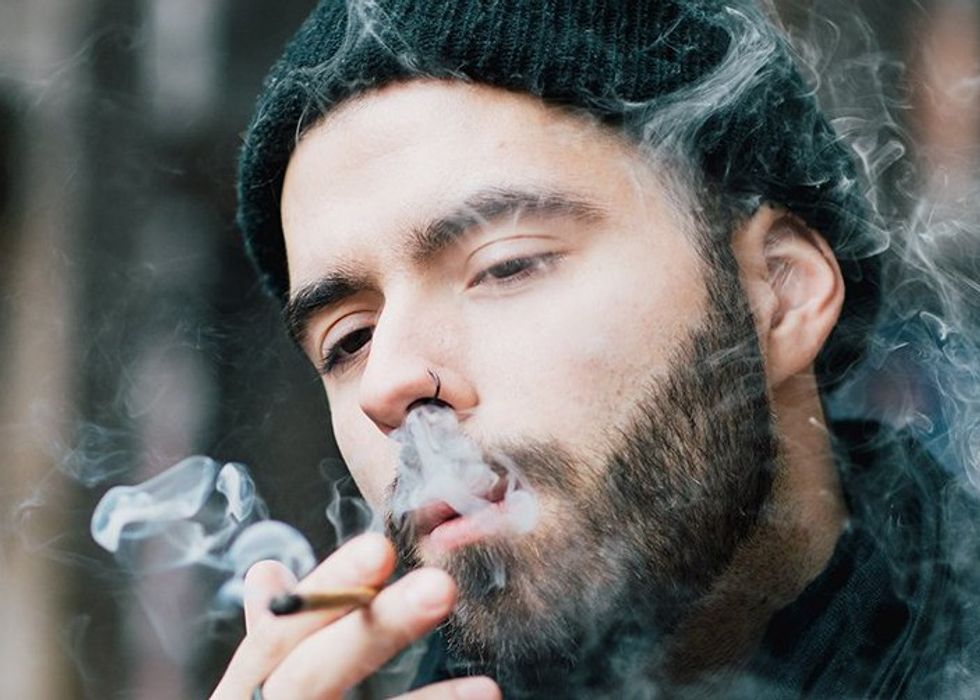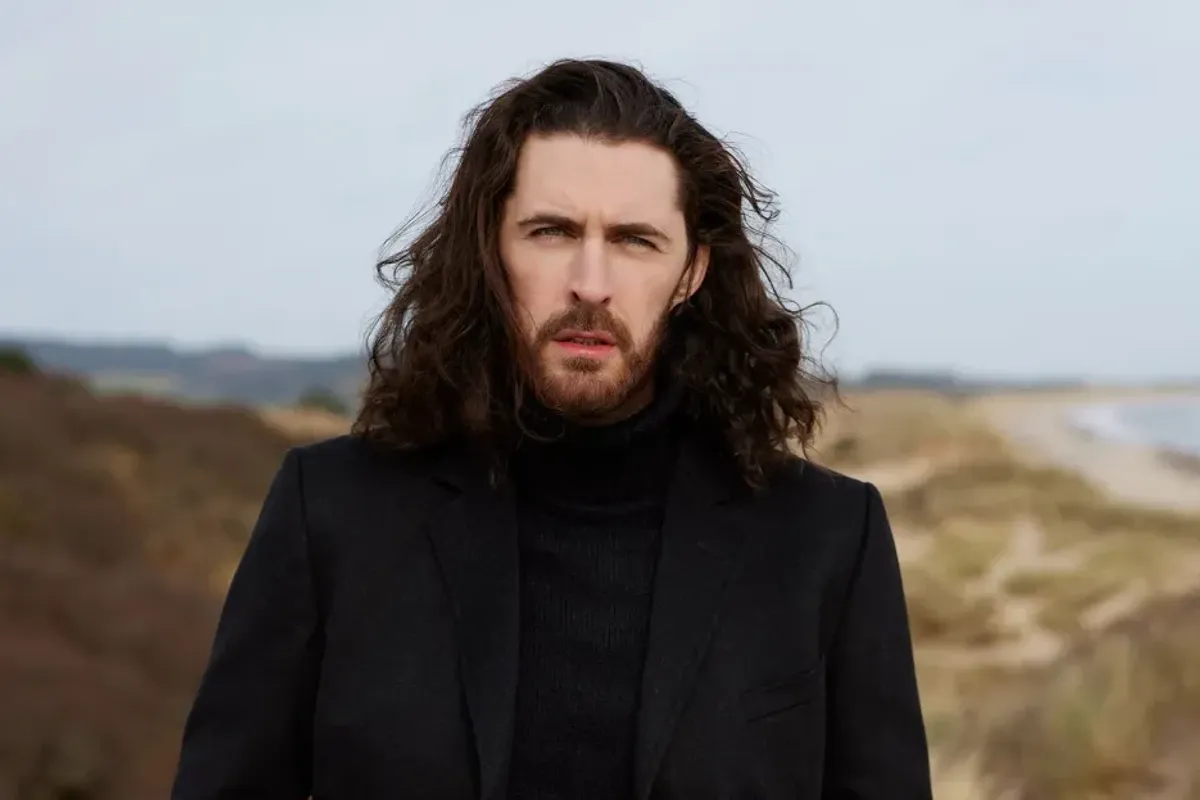A Conversation With .. Conor Gains
The Cobalt Prize-winning singer/guitarist is expanding the boundaries of the blues on his new album Compass. He discusses this direction and his dislike of blues nazis in this revealing interview.

By Bill King
Occasionally an artist will make your head spin. In those recorded grooves something ear-catching demands you sit up and listen and take note.
We get the media spin and let it dry on the line. We’ve all been around this neighbourhood too long to get bent one way or another. Conor Gains' new side Compass arrived without fanfare and hype. Just a request from the publicist to have a listen.
I’d heard Conor’s work a couple years back and made a mental note that this was an artist developing a sound and approach unique to himself. Compass doesn’t disappoint. In fact, it elevates Gains into ‘take seriously’ artist territory.
Gains is a young craftsman at the dawn of what could be a significant career. Not the kind that drops a record unannounced and the world clutches as if it were a swag bag, but a meticulous songwriter with a great voice and considerable guitar chops. Gains also understands studio time and about getting it right; documenting and experimenting and leaving the canvas to dry with all that needs to be said.
Check out “Ordinary Love” – the recording is on Spotify, and I’m sure we’ll arrive on common ground, the young man is a major talent. Here’s a bit of a recent conversation between the two of us.
In 2016, “Leave it on the Line” won the Cobalt Prize at the Maple Blues Awards. Was that for best song?
It's a new category that Paul Reddick came up with and called it the Cobalt Prize, and it is to highlight further adventures into stylistic branching out within the parameters of a blues context. He talks about blues being a landscape where you can start to elaborate on and use the beautiful gifts that we've got from our record collections to give us new wings to ascend into different styles.
That’s exactly what I thought when I was listening to your new recording Compass yesterday. Blues bands for the most part seem locked in a box and make the same record over and over. You are expanding the boundaries.
To me, that's the thing. It's like that stunts the growth of music when people start to hold it so tightly. It's the same with a lover or if you're with a partner and you hold on so tightly to them you're going to smother them and they're going to run away from you. The same thing with the blues. People don't want to hear music that's been preserved perfectly over and over and over again. I've got my record collection for that. I don't need to go and see Muddy Waters 2.0. Muddy Waters did that already.
They don’t get that in order to make a new cool hip modern blues tradition they can follow and have a beautiful legacy with different musicians, they kind of look to the past and honor that. Myself included up until the past five years. The main thing is when you listen to contemporary artists you see they are a lot of the time either a ‘blues Nazi’ or a ‘jazz Nazi’. They're really attached to that. Or there's the people who are kind of like freestyle and making their own expression based on an authentic flow with the music and how it touches them personally.
It's an interesting thought. When you're coming up and when you're first performing live, you are playing these tunes. You're playing Muddy Waters, Howlin’ Wolf but that's part of your education. You're teaching yourself. You play them on a gig and people love hearing it. It's not that you outgrow that material, you outgrow their material and you push yourself in other direction.
The first thing I heard in your music was a touch of D'Angelo.
He’s a huge inspiration for me for sure. When you listen to D'Angelo there's some great records and some great interviews with Quest Love and the band and D’Angelo and the way he records music. I don’t know the guy personally. But I like the way that he goes into the studio. Apparently it took a year to do Spanish Joint and he just tried it with a million different people. He's so good at putting down a great mix between his generation and was such a huge Stevie Wonder and Prince and Marvin Gaye fan. I think a lot of the songs on Voodoo were apparently written from jamming Marvin Gaye songs and with his own kind of fresh hip-hop influenced jazz mannerisms that they brought into that kind of soul category and then made it turn into something that was completely new.
What I love about his productions are the layering of vocals and how they kind of lag behind the beat. When you’ve got a voice like yours, you can go anywhere. I like the fact that you push and stretch your harmonies and build each track beautifully.
I'm really grateful to my man Guillermo Subauste. He's a great producer and worked with me on the engineering of the album and was really patient with me while I tried. I wanted to have four-part harmonies, and he was patient to try five to see that it didn't work. It is sometimes necessary to just play and experiment.
You have a summer of touring ahead. Are these basically blues festivals?
I’m doing a lot of jazz festivals. I’m trying to get to more neutral audiences. I love to play the blues festivals and am doing my share of some blues festivals.
Will you temper your set for the blues audiences?
I might split the difference between the two. I have a lot of blues songs that I put on previous albums that I might throw into the mix. Basically, I want to be myself and not worry about the haters.
Which came first, the guitar playing or the singing?
Definitely the guitar playing. My dad played the Allman Brothers, British blues stuff all over the house and rock records and the Who. I was rocking out when I was a little baby and then started playing the guitar.
Did you take lessons privately?
Yeah, I had a bunch of different teachers in Cambridge, Ontario, where I grew up.
Do you work outside of your situation with other bands to sustain a living?
I am doing some work with other guys as well. I play rhythm guitar in a band called the Honeyrunners, a great Toronto band that Guillermo, the engineer and producer on the record, is in, as well as my friend Dan Dwoskin who I was with last night when we were out seeing the Pick Brothers, another great Toronto band. Have you heard of them?
No.
They're fabulous. They are three brothers and they all sing. Two of them are guitar players; Gabriel and Jeremiah are both guitar players, and KC plays the bass. They have a three-part horn section and keys and drums. It's such a good band and they have great new songs. You should go check them out.
Do you get out often to see other bands?
I go out as many nights I can between rest.
What are people missing about the blues?
A lot of people go for the cool points with the style of blues and they miss out on the expansion of their understanding of their instrument. And I think that that can be a limiting state of mind to want to just stay where you're at. I think the jazz and gospel and hip-hop world is off the hook with musicians that are blowing my mind. The more I go out to hip-hop open mikes I realize that that's kind of where the current has gone, and you can see some of the best musicians just playing the simplest thing. There's lots to learn.
You were recently in Mexico.
Yeah, I was at a music festival called Isla Got Soul on Isla Mujeres, Mexico. I was there in April. beautiful. It was a tough time because a brother named Shane King who was the guy who put the festival together passed away a week before I was to go there. Instead of a celebration with all of us hanging out together in the sunshine, it turned into a big outpouring of love into the memory of the man and his family. And it was a powerful time, but it was one of the best groups of people to gather around the family to show support like that.
Coming up, you've got June 21st at the Solstice Festival and Sing Singhampton, Ontario. Where's that?
I was there last year, and I think it's up north a couple of hours. It's a beautiful festival. It's a weeklong festival where it's an intentional community, meaning everybody who goes there pays for a ticket and you volunteer and you do this kind of ‘everybody does it shift’ and volunteer. I'm not sure of the numbers attending exactly, but it seems like a lot of people go.
And then on to the Montreal Jazz Festival.
Yeah, we’re going to have some fun. We're doing a big stage outside.
Not sure of thename of it, but it's always great. They are a good audience. I’ve played a few times; the people of Montreal at nighttime in the summertime are amazing. They get winter bad and do summer well.
You're having your album release party in Quebec City July 14.
And we're doing the Rainbow in Ottawa on July 20. I love the place. It's been my Ottawa haunt.

















